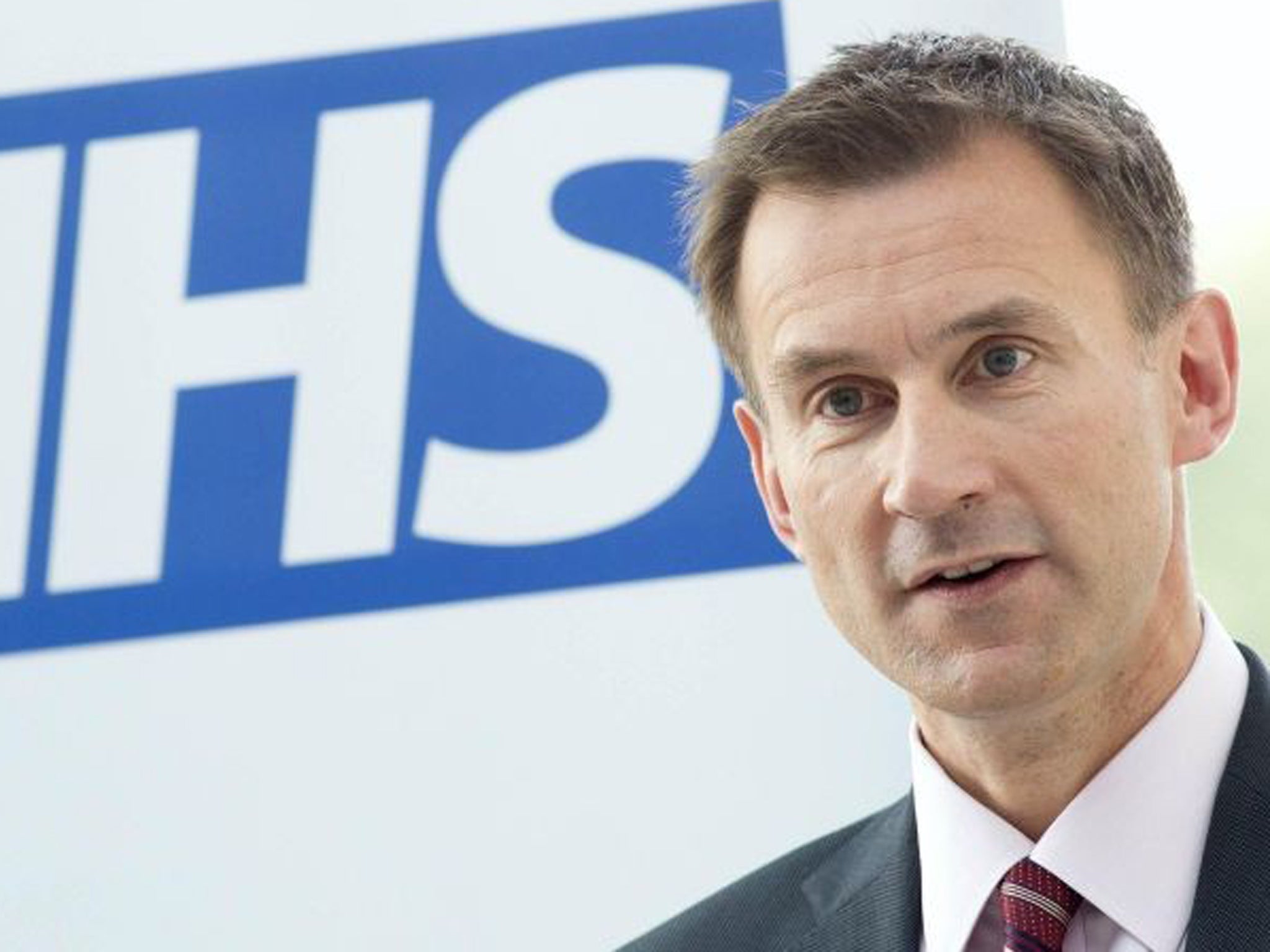More hospitals are likely to be exposed for inadequate care standards, warns Health Secretary Jeremy Hunt
Jeremy Hunt announces 'robust' new failure regime for 11 NHS trusts with some of worst death rates

Your support helps us to tell the story
From reproductive rights to climate change to Big Tech, The Independent is on the ground when the story is developing. Whether it's investigating the financials of Elon Musk's pro-Trump PAC or producing our latest documentary, 'The A Word', which shines a light on the American women fighting for reproductive rights, we know how important it is to parse out the facts from the messaging.
At such a critical moment in US history, we need reporters on the ground. Your donation allows us to keep sending journalists to speak to both sides of the story.
The Independent is trusted by Americans across the entire political spectrum. And unlike many other quality news outlets, we choose not to lock Americans out of our reporting and analysis with paywalls. We believe quality journalism should be available to everyone, paid for by those who can afford it.
Your support makes all the difference.The public should prepare for more hospitals to be exposed as having inadequate care standards, the Health Secretary has said.
Jeremy Hunt warned it was "likely" that more hospitals would be placed in special measures, as he announced a "robust" new failure regime for 11 NHS trusts with some of the worst mortality rates in the country, which will see leaders of successful hospitals drafted in to turn the failing institutions around.
NHS trusts that are placed in special measures will now be "buddied" with a high-achieving trust, with successful managers and medical directors sharing expertise, in plans based on the Department of Education's "superhead" programme.
"We want to give the public confidence that it is not the end of the world if a hospital goes into special measures," Mr Hunt said. "There is a robust plan in place to deal with it."
The new chief inspector of hospitals, Sir Mike Richards, this week began visiting hospitals under a new inspection regime brought in to address what Mr Hunt yesterday acknowledged were widespread failings in the NHS regulatory system.
The health secretary said it was "likely" that the new chief inspector would identify other hospitals that needed to be placed under special measures.
He said that the "inspirational leaders" from the best-performing hospitals were needed to resolve "entrenched problems" at failing trusts, but warned that turning under-achieving hospitals around could take between three and five years.
Bonus payments from a pot totalling £5.5m will be available for successful trusts that succeed in bringing their partner trust out of special measures. Trusts will also be reimbursed for the time given up by staff.
Six of the 11 hospitals in special measures are foundation trusts, which have more independence than other trusts. Mr Hunt said that some foundation trusts had made "unacceptable compromises" on staffing levels in order to achieve the financial sustainability required to qualify foundation trust status.
Dame Julie Moore, chief executive of the University Hospitals Birmingham Trust, which has been partnered with two trusts in special measures, said that smaller trusts could begin to fail because they became isolated, and that addressing pockets of poor care would benefit the entire NHS.
"If we don't help them, then many patients will end up in our hospitals anyway," she said. "Good hospitals could be overwhelmed."
The first 11 trusts to enter the new failure regime were placed in special measures after being criticised by the medical director of the NHS Sir Bruce Keogh, in his report on NHS hospitals with outlying mortality rates.
Sir Bruce said several of the trusts had unacceptably low staffing levels. Some have already begun appointing more nurses and consultants to improve care, including Basildon and Thurrock University Hospitals Foundation Trust, which has appointed an extra 200 nurses.
Join our commenting forum
Join thought-provoking conversations, follow other Independent readers and see their replies
Comments